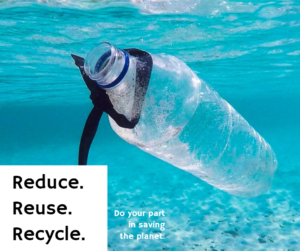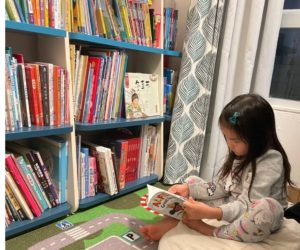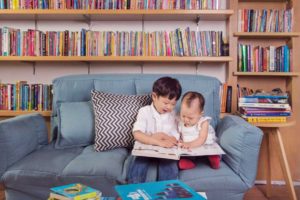Amidst the COVID-19 crisis, experts are advising the general public to avoid crowded places, wash hands frequently and to stay at home more, while many families have cancelled travel plans abroad for this upcoming school holidays. As the virus situation continues to unravel in different countries, schools are also being suspended in more cities.
For families who are planning to spend more time at home over school the holidays, or in cities where schools are suspended with classes transformed to take shape via distant e-learning, how can parents maintain a positive learning environment at home whilst ensuring our children (and parents!) stay happy and feel in control? What roles should children and parents play?
One may not realise, but our homes are a crucial learning ground for young children with a lasting impact. From how our homes are set up to how we react to the small incidents our children encounter, these all have a part to play in the cultivation of our children’s independence and the general character development, which in my opinion is more important than academic in the long run (will expand on this later in the post).
Independence is a big word and has many aspects to it. In the context of young children, this could mean having the language ability to express thoughts and feelings, doing things on their own, taking care of oneself and problems solving.
In the wake of COVID-19, parents are becoming more cautious of their children’s personal hygiene and social behaviours. Instead of instructing or shouting to your children what they cannot do (out of genuine concerns!), try use simple terms to explain why there needs to be a change in habit and let them know what are the alternatives that they can do.

Involve and empower your children with taking part in your home’s daily chores – even young children can develop age-appropriate self-care capabilities IF we let them! Examples of the simple things that your children can can do on their own at home and support independence are:
- Change out of pyjamas into daywear each day – let them choose especially if you are staying in, even if the colours and style totally clash!
- Wash own hands – show them the proper 20 seconds way (have you heard singing ‘Happy Birthday’ twice is about 20 seconds?)
- Assist to prepare breakfast and other meals – find tasks that your child can handle
- Tidy up toys and own mess after playing, and know where to store things
- Help clean and wipe tables and desks, e.g. make child responsible for their own desk
- Let your child pick a book of interest and read together. Invite your child to describe the pictures or read to you!
- Extend beyond the book to do related activities or conduct further research together on interested topics. This helps your children stay curious, which is key in raising lifelong learners!
- For older kids, be responsible for how homework is organised at home and take charge of own learning with facilitation from parents. Being organised helps with children’s logic and shapes how they sort and process information in the future.
Reading gives us some place to go when we have to stay where we are.
A key to the above examples is to set up your home in a way that you are helping your children to do things by themselves, for instance:
- place a stool below the sink if it is too high for your children to reach the tap;
- have all toys and personal items stored at a level that your children can reach themselves;
- place books where children can easily access;
- help set up a dedicated place at home and a system to organise school work;
- put all dangerous items such as bleach and disinfectant out of reach so children can explore freely at home.

For tasks that your young children are unfamiliar with, demonstrate and describe to them what needs to be done step by step – also a great way to learn new vocabulary!
Next, just sit back and let your child take charge! You might need to lower your standards and assist to start with, but with time and practice, together with trust and patience it will happen!

Problems and accidents are bound to happen as they develop independence, involve your child as part of the problem-solving process! For instance, when your child has spilt a cup of water, give your child the opportunity to know what to do – try ask your child “Whoops, what shall we do?” and guide them to an answer and allow them to clean up themselves. They will need to know where cloths are stored – are these accessible by your child?
This will be a better approach than scolding your child for being careless whilst taking over to clean up. You may also suggest to your child to push the cup closer in from the table edge to avoid the accident from happening again.
There are plenty of learning opportunities at home which can take place in many different forms. As parents, we need to reframe our minds as to how children spend time at home and how we interact with them. These daily encounters our children experience may seem insignificant to you, yet these shape their minds and are the foundation to how our children will approach life in the future.
Learning is not linear. We should embrace the diverse learning paths for our children and even ourselves! For children who are suspended from school during this epidemic period, parents might worry they slow down on the academic front, however in the grand scheme of things, the overall learning is still progressing but taking shape in different forms and aspects if we allow.
So, should your families chose to stay at home for this upcoming school holidays or imposing self-quarantine at home when necessary or as required, instead of buying more academic exercise workbooks or activities for your children to do at home, consider trying out the suggested ‘practical life’ activities! This is based on my belief that the core and ultimate goal of raising our children is to help them become independent and responsible citizens one day, and be motivated to self-improve and stay curious to be lifelong learners. Knowledge can be learnt anytime in life when one desires, but the character traits would be more difficult to alter once formed.
How about you – putting your daily parenting tasks aside, have you thought about what is the core in raising up your children and what expectations do you have from them when they become adults?
The goal of early childhood education should be to activate the child’s own natural desire to learn.”





